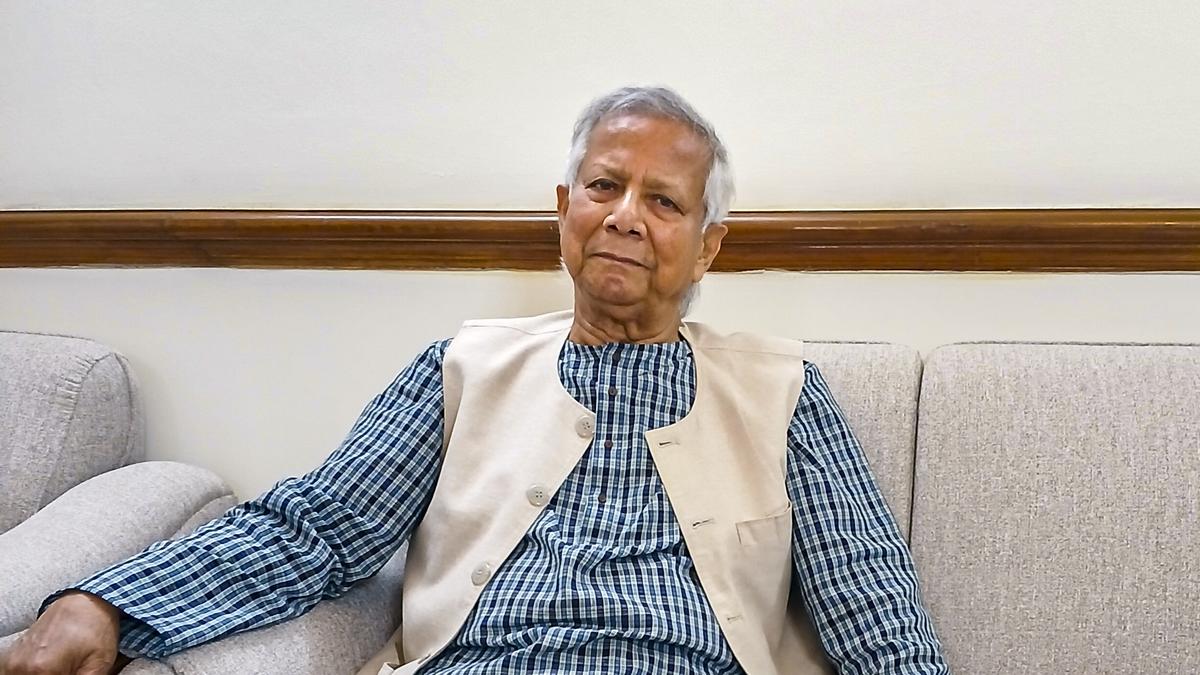Teesta water issue has to be solved
Chief Adviser Muhammad Yunus has emphasised the need to resolve the longstanding transboundary river water-sharing issue between India and Bangladesh in line with international norms.
In the second part of the interview with Press Trust of India, conducted at the CA’s official residence in Dhaka last Sunday, Yunus said lower riparian countries like Bangladesh have specific rights that must be respected.
The second part of the interview was released yesterday.
The chief adviser said Bangladesh’s interim government would continue working with India to resolve differences over the long-pending Teesta water-sharing treaty, which has been in limbo since 2011.
“By sitting over this issue [water sharing], it is not serving any purpose. If I know how much water I will get, even if I am not happy and sign it, it would be better. This issue has to be resolved.”
Asked about the interim government’s stance on fast-tracking the Teesta treaty, Yunus clarified, “Push is a strong word. I wouldn’t say we will push, but we will pursue it. Both sides need to sit down and settle it.”
The Teesta water-sharing agreement has faced opposition from West Bengal Chief Minister Mamata Banerjee, who has cited water shortages in her state’s northern region.
Yunus acknowledged the complexity of the situation, noting that while the Indian central government was prepared to finalise the deal, the state government’s resistance has held it back. “This issue predates Bangladesh’s independence. It’s time to finalise it.”
He proposed a humanitarian approach to manage flood crises, even in the absence of a formal treaty between Bangladesh and India.
“When the Indian high commissioner met with me, I suggested better coordination to control flood situations. This can be done on humanitarian grounds, without needing a treaty. Such cooperation would ease the suffering of the people,” the chief adviser said.
On the contentious issue of border killings, Yunus strongly condemned the deaths of Bangladeshi citizens along the India-Bangladesh border.
“Killing is not a solution. There are legal avenues for dealing with border issues. Those being shot are not invaders but couriers. This is sheer callousness, and it must stop.”
‘WILL TRY TO MEET MODI’
Yunus said he will try to meet Indian Prime Minister Narendra Modi on the sidelines of the UN General Assembly session in New York later this month.
He also revealed his plans to gather the heads of the SAARC nations for a symbolic photo opportunity.
“SAARC was formed for a great cause. It now exists only on paper and is not functioning. We have forgotten the name of SAARC; I am trying to revive the spirit of SAARC.”
The chief adviser said South Asian Association for Regional Cooperation (SAARC) has not held a summit for a long time, and pointed out the potential benefits of renewed cooperation among the member countries.
“The SAARC summit has not taken place for quite a long time. If we come together, a lot of problems will be resolved,” he said.
Modi is expected to address the UNGA on September 26, according to a provisional list of speakers issued by the UN.
Yunus emphasised the need to revive the “spirit of SAARC”, stating that the eight-member bloc holds the potential to address many of the region’s pressing issues.
SAARC comprises Afghanistan, Bangladesh, Bhutan, India, the Maldives, Nepal, Pakistan, and Sri Lanka.
Drawing a comparison with the European Union, Yunus noted, “The European countries have achieved a lot through the European Union. We have to ensure that SAARC works…. If there is a problem regarding Pakistan, other ways can be worked out. But the functioning of SAARC must not stop.”
On the Rohingya crisis, the chief adviser called for assistance from India and China in convincing Myanmar to repatriate the displaced population.
LondonGBDESK//



Comments are closed.